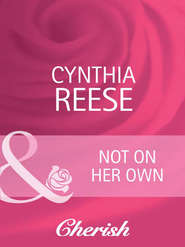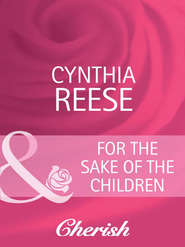По всем вопросам обращайтесь на: info@litportal.ru
(©) 2003-2025.
✖
The Baby Wait
Автор
Год написания книги
2018
Настройки чтения
Размер шрифта
Высота строк
Поля
A year ago, I’d thought I’d lost all chance of having my own child. A year ago, I hadn’t known about Meredith.
Okay, so it still hurts a little. A lot even. But I’ll get my baby. I’ll get Meredith.
“Oh, my gracious,” said the woman on my left, dressed in a pink-flowered shirt stretched tautly over her rounded belly. “Here we are, jabbering all around you.”
“Would you like me to switch places with you?” I offered. “Sounds like you two have a lot of notes to compare. Is it your first baby?”
“Oh, yeah,” the lady on my right said, “and it’s not gonna come a moment too soon. I want to see my feet again. I’m wondering now if I have feet.”
I couldn’t help but glance down at her lime-green flip-flops and her very swollen feet and ankles. She definitely possessed feet, but whether she would like them if she saw them was another story.
“I know what you mean. Nobody ever warned me being pregnant could be so miserable. But I wouldn’t trade it for anything,” the pink-flowered-shirt lady said. “You have kids?”
The question didn’t contain the power to knife me like it had. I hesitated for a moment, worrying the inquiry like a loose tooth, just to check. A little twinge. But not the big one. “No kids yet,” I said.
“Oh, but you’re not that old. You still have time. You’re what? Thirty-two? Thirty-three?” the flip-flop-shod woman asked.
“Thanks. I’m actually thirty-six. And my husband and I are adopting.” Just saying the words banished the ache inside me.
“Oh, wow…. That’s such a great thing to do. Wow! I’m impressed. A boy or a girl or do you know?”
“A little girl. We’re adopting a baby from China.”
Pink Flowers’ eyes went round. “Don’t they kill off all their girls over there? They want boys, right?”
In a delicate, split-second assessment, I decided she wasn’t ready for a lecture on China’s population explosion or why girls were more frequently adopted than boys. “Oh, they love their little girls. We just requested a baby girl.”
The other woman smoothed a hand over her rounded abdomen. “Well, that baby’s gonna be a lucky little girl, what with you and your husband rescuing her. She’s gonna be so blessed.”
I’d encountered this remark before, too. You don’t negotiate five months of the Paperchase From Hell and four months of The Wait without hearing some variation of the “You’re such a hero” speech. I offered up another smile and said, “We’ll be the lucky ones.”
“So why’d you decide to adopt from China? I mean, couldn’t you have any real kids?” Pink Flowers asked.
That question, which would have tormented me a year ago, still possessed a sharp edge. I considered her use of the word, real, as if I’d get a beautiful China doll instead of a flesh-and-blood baby. “No. We couldn’t have biological children.”
She gasped, popping a hand over her mouth. Her eyes welled up with tears, and she laid a hand on my arm. “Oh, I just…that’s awful. How long have you guys been trying? I just can’t imagine not being able to have a baby.”
The redhead in the flip-flops joined in, her eyes pained as well. “Was it endometriosis? I have endometriosis. I had to have surgery, and that fixed me right up. Did you try the surgery?”
Ann Landers would have recommended responding with, “Why do you need to know?” But I found I couldn’t do this to these ladies. They meant well in their clumsy way. I shook my head. “No. I had cancer.”
“Cancer!” both of them breathed in unison. I could see them busily counting their blessings: they were cancer-free and could conceive…and would hold their babies within a few weeks.
“Yes. Ovarian cancer.”
The mention of the big C had a way of killing conversation. The two women fell as silent as a pair of bookends. I swung shut mental gates to hem in the memories. The day the biopsy had come back positive, the surgery, the chemo. I’d made it through. And here I was, in my sixth cancer-free year, hoping for a routine ob-gyn exam. Just let it be normal.
To distract myself, I let my eyes wander over the waiting room.
On this Thursday morning, Dr. Kaska’s Queen Anne armchairs were crammed with expectant mothers. The only other flat-bellied women in the room were a sullen mother-daughter pair, the girl dressed in tight blue jeans and a barely-there crop top that showed off her belly button ring. Her over-mascaraed eyes brimmed with suppressed rage at being with her mother in an ob-gyn’s office.
Another Cherie, I thought to myself. I know how the mom feels. I caught the woman’s eye and gave her an encouraging smile. She smiled back, her face lighter and not so drawn.
I did know how she felt. I’d raised my husband’s baby sister from the time he and I had returned from our honeymoon sixteen years ago. The truculent eleven-year-old, who regarded her new sister-in-law as something just short of a horned she-devil, had been waiting for us on our front-porch steps. Not exactly the welcome a blushing bride wanted, but I’d known Cherie came with Joe like a piece of Samsonite luggage. After all, it was just the two of them.
Cherie had not improved with age. Just last night, she’d called, mooching money because her funds had run short.
The door opened, and another pregnant woman came in, a toddler clinging to her skirts. For a moment, as she stood eyeing the packed waiting room, my heart froze in my chest. The boy’s wheat-straw head, buried into her billowy maternity dress, could have been Matthew’s.
The mother in the mother-daughter team jabbed her daughter and stood up. “Here, ma’am. You can take our chairs. You and your little boy.”
The boy turned then, looked me straight in the face. My heartbeat returned to normal. He was nothing like my Matthew.
Matthew had come into our lives like a sudden summer thunderstorm. One minute we were a couple, the next we were parents. Well, foster parents. He’d been eighteen months old, scrawny and small, with big blue eyes that stared in terror when the Division of Family and Children Services had brought him to us.
And we’d just got him into big boy pants and had enrolled him in preschool when DFCS had come to take him away.
Eighteen months, give or take. That’s all we’d had. Eighteen months to drift into the idea that Matthew was forever. Eighteen months for Joe to slip into the habit of introducing Matthew as “my son.” Eighteen months to lose our hearts completely, to forget the foster in foster parents.
The optimism in my heart flickered and dimmed. Consciously, I replaced the memory of the loss with a stern reminder: Once you get on that plane for home, Meredith is yours forever, and nobody can take her away.
IN THE EXAM ROOM, I stared at the ceiling while Dr. Kaska did her business below the belt. No matter how often this had been done, it never got any easier for me. In fact, the idea a ticking time bomb lay in my gut made me all the more tense. Six years. You’re cured. They’ve looked. You’re cured.
“Relax, Sara. It’s not like you’re a stranger to Mr. Speculum here.”
The nurse behind Dr. Kaska laughed, and all I could think about was, Gee, they’re looking at my privates. Doesn’t that get old pretty quick?
Latex gloves came off with a snap. “Okay, all done. Get those clothes back on and we’ll talk in my office.”
Dr. Kaska, neat and pretty with a heart-shaped face, seemed dwarfed by the huge desk dominating her office. I’d asked her about it some years before, and she’d explained that her father had built it for her. Now I sat across from the graduation present a proud dad had crafted with his own two hands, and I thought about Joe.
Would he be excited enough to do something like that? Would he take time away from his construction business to labor over a chunk of wood large enough to float his grown daughter down a river?
Dr. Kaska grinned. “Everything looks fine. I mainly wanted to catch up with you about the baby. I’m so jealous! I want to go to China, always have. And you get to bring back your very own life-size souvenir.”
I looked heavenward. “You sound like Joe. He tells everybody we’re going for Chinese takeout in a big way.”
“So he’s excited? I’ll bet he can’t wait to hold that baby girl.”
My stomach tensed. Joe excited? Not exactly the right word for it. “Um, you know Joe. Cautiously optimistic.”
“Just like a guy. Got to have that empirical evidence. No faith whatsoever.”
“He worries.”
“About the cancer?” Dr. Kaska bit her lip. “I can’t tell you it won’t come back, Sara. And neither can your oncologist at Emory. But we were lucky—you were lucky. We caught it early, and you’ve had no recurrences for five years, nearly six.”
“I know. I tell that to Joe all the time.”











